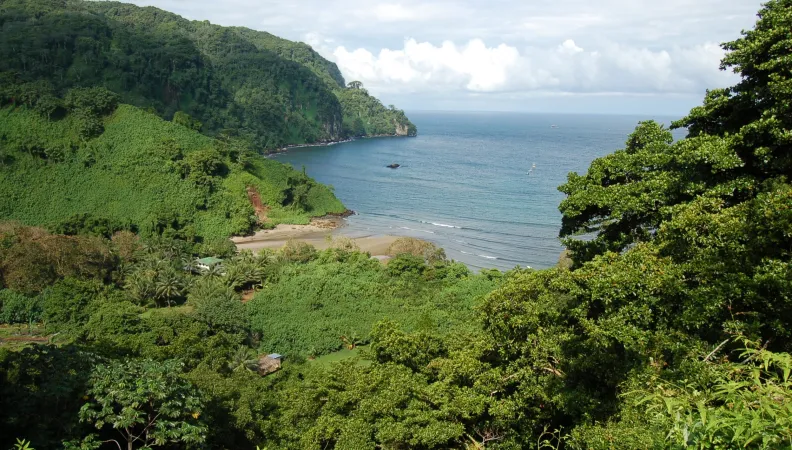Share the page
South Expert Plants/Sustainable Development Program (SEP/DD)
Project


-
Project start date
-
Status
Completed
-
Estimated date of project termination
-
-
Project financing date
-
-
Financing duration
-
5 ans
-
Type of program
-
FFEM
-
Global financing amount
-
5288000 €
-
FFEM financing amount
-
1500000 €
-
Project lead member institution(s)
-
AFD, Ministère de l'Enseignement supérieur, de la Recherche et de l'Innovation, Ministry for Europe and Foreign Affairs
-
Country and region
-
Cambodia, Burkina Faso, Comoros, Cameroon
-
Location
-
Burkina Faso
-
Type of financing
-
Grant
-
Partners
-
AFD, IRD
-
Beneficiaries
-
Institut de Recherche pour le Développement (IRD)
Strengthening the scientific and technical expertise of countries in the South in the field of plant biodiversity. With support for the partnership between the private sector, administrations and scientific teams, training for professionals in ecological engineering and natural products sectors, and contributing to improving innovative policies and practices for the preservation and development of biodiversity in the South.
Context
The project fits in with the context of major international decisions. The strategic program of the Convention on Biological Diversity sets ambitious objectives for the sustainable use of natural resources for 2011-2020. The Conference of the Parties – COP – held in 2010 validated a Global Strategy for Plant Conservation based on five objectives, which include a better understanding of species and good practices for their sustainable management. This COP recommended building capacities for taxonomy initiatives.
The ABS Protocol (Access and Benefit Sharing) adopted in Nagoya in 2010 focuses on clarifying rules to access and use biodiversity, and the more equitable sharing of the benefits generated by its commercial development between users and countries and supplier communities. It came into force in October 2014.
Most countries in the North have managed to anticipate these changes, thanks to the quality of their scientific institutions and their relations with their public authorities. The “knowledge/forecasting model/action” link functions properly there. A number of countries in Africa, the Indian Ocean and Southeast Asia do not benefit from such an organization. To bring about realistic practices and legal or regulatory frameworks, it is necessary to stimulate dialogue and pilot actions between these different groups of actors (researchers, governments and private companies).
Description
The project comprises four components:
- A preparatory phase to create the appropriate conditions via a launch seminar, the creation of an SEP2D website, the preparation of a map and country studies to adapt the project operations to the various national contexts.
- A strengthening of professionalization, which aims to encourage botanists to move towards the application of their knowledge. Activities such as building training programs and improving laboratory equipment will be developed.
- Development of a partnership culture, which finances pilot field actions to meet demands from public services and private companies.
- Support for national, regional and international public policies to promote the drafting of recommendations and advocacy, to communicate on the teams set up in the context of the project, and group together professional training modules built throughout the project.
Impacts
The networks supported by botanists have increased national and international visibility with the competences and skills acquired in the context of SEP/DD, which allow them to participate in:
- The preparation at national level of more realistic public policies, programs and regulations, working closely with the various actors, with the possibility in the long term of a significant impact on the preservation of plant biodiversity.
- The preparation of major regional or international negotiations related to biodiversity.
- Academic and vocational training actions and information for civil society and various public or private actors (officials and technicians) engaged in the green economy and a strengthening of technical equipment for collection management.


